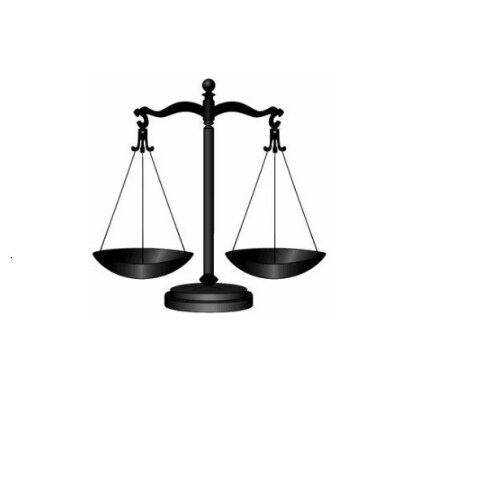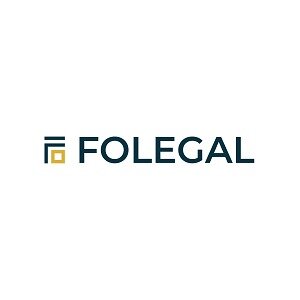Best Animal Law Lawyers in Nigeria
Share your needs with us, get contacted by law firms.
Free. Takes 2 min.
Or refine your search by selecting a city:
List of the best lawyers in Nigeria
About Animal Law in Nigeria
Animal Law in Nigeria is a growing field that involves the regulations and legal principles relating to non-human animals. This area of law encompasses animal rights, welfare, and the ethical treatment of animals, and includes regulations on domestic pets, wildlife conservation, livestock, and anti-cruelty measures. The legal framework governing animal law in Nigeria is set by a combination of federal statutes, state laws, and international treaties to which Nigeria is a signatory.
Why You May Need a Lawyer
There are several situations that might necessitate seeking legal help in the field of Animal Law. These include:
- Disputes related to animal ownership or custody.
- Cases of animal cruelty or neglect.
- Issues concerning the sale and purchase of animals, including livestock and domestic pets.
- Legal assistance in establishing animal welfare organizations or shelters.
- Guidance on compliance with local and international wildlife conservation regulations.
- Resolution of conflicts involving agricultural law and livestock management.
Local Laws Overview
Nigeria has a variety of laws that impact Animal Law. Key aspects include:
- The Animal Diseases (Control) Act: Regulates the control and prevention of animal diseases.
- The Endangered Species (Control of International Trade and Traffic) Act: Protects Nigeria’s wildlife from illegal poaching and trafficking.
- The Cruelty to Animals Act: Provides guidelines and penalties against animal cruelty and neglect.
- Local government bylaws: Some local governments have their own regulations regarding animal welfare, registration, and livestock farming.
- International treaties: Nigeria is a signatory to various international conventions that promote animal welfare and biodiversity, such as the Convention on International Trade in Endangered Species (CITES).
Frequently Asked Questions
What is Animal Law?
Animal Law is a field of law dealing with legal issues affecting non-human animals, including their rights, treatment, and welfare.
Do animals have legal rights in Nigeria?
While animals do not have legal rights like humans do, there are laws in Nigeria that protect animal welfare and prevent cruelty and abuse.
How is animal cruelty addressed in Nigeria?
The Cruelty to Animals Act addresses animal cruelty with provisions meant to prevent harm and neglect and imposes penalties on violators.
What should I do if I witness animal cruelty?
If you witness animal cruelty, you should report it to the relevant authorities such as the local police, veterinary services, or animal welfare organizations.
Are there laws regarding pet ownership in Nigeria?
Yes, there are laws regarding pet ownership, including requirements for pet identification, vaccination, and control measures.
How can I start an animal welfare NGO in Nigeria?
You will need to register your organization with the Corporate Affairs Commission and comply with local regulations regarding non-profit activities.
What are the consequences for illegal wildlife trade in Nigeria?
Engaging in the illegal wildlife trade can lead to severe penalties, including fines and imprisonment, under the Endangered Species Act.
Can animals be part of a legal contract in Nigeria?
Yes, animals can be included in legal contracts, especially in the contexts of sale, purchase, and breeding arrangements.
Is there a legal minimum standard of care for animals in Nigeria?
Yes, the law requires that animals are afforded a minimum standard of care, including adequate food, shelter, and medical treatment.
What laws protect farm animals in Nigeria?
The Animal Diseases (Control) Act and state regulations govern the care, management, and protection of farm animals in Nigeria.
Additional Resources
Here are some resources that can be valuable for those seeking legal advice in Animal Law:
- The Nigerian Bar Association (for finding legal practitioners specialized in Animal Law).
- The Ministry of Environment (for regulations on wildlife conservation and protection).
- Animal welfare organizations such as the Society for the Prevention of Cruelty to Animals (SPCA) and World Animal Protection Nigeria.
Next Steps
If you require legal assistance in Animal Law, consider the following steps:
- Identify the specific legal issue you are facing and gather relevant documentation.
- Consult with a lawyer who specializes in Animal Law from the Nigerian Bar Association.
- Engage with government agencies if your issue involves public regulations and enforcement.
- Consider contacting local animal welfare organizations for advice and support concerning animal protection matters.
Lawzana helps you find the best lawyers and law firms in Nigeria through a curated and pre-screened list of qualified legal professionals. Our platform offers rankings and detailed profiles of attorneys and law firms, allowing you to compare based on practice areas, including Animal Law, experience, and client feedback.
Each profile includes a description of the firm's areas of practice, client reviews, team members and partners, year of establishment, spoken languages, office locations, contact information, social media presence, and any published articles or resources. Most firms on our platform speak English and are experienced in both local and international legal matters.
Get a quote from top-rated law firms in Nigeria — quickly, securely, and without unnecessary hassle.
Disclaimer:
The information provided on this page is for general informational purposes only and does not constitute legal advice. While we strive to ensure the accuracy and relevance of the content, legal information may change over time, and interpretations of the law can vary. You should always consult with a qualified legal professional for advice specific to your situation.
We disclaim all liability for actions taken or not taken based on the content of this page. If you believe any information is incorrect or outdated, please contact us, and we will review and update it where appropriate.
Browse animal law law firms by city in Nigeria
Refine your search by selecting a city.
















